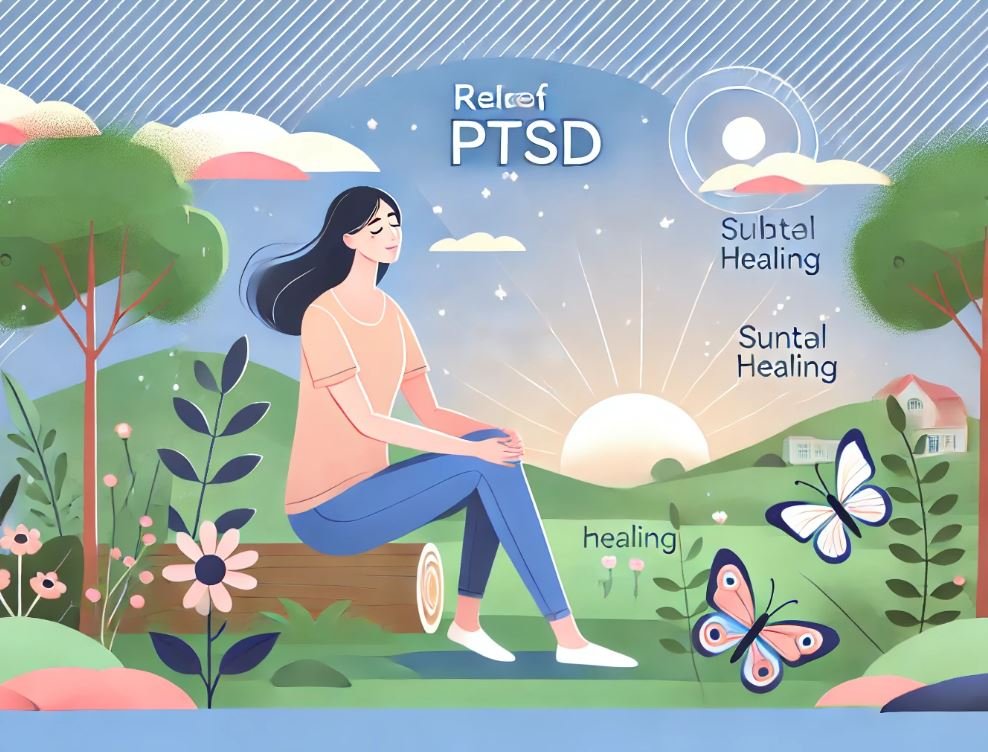Post-Traumatic Stress Disorder (PTSD) is a complex mental health condition triggered by experiencing or witnessing a traumatic event. Many individuals and their loved ones wonder, “Can PTSD go away?” The journey to recovery can be challenging, but with the right treatment and support, it is possible to manage and even overcome PTSD. In this article, we’ll explore the nature of PTSD, effective treatments, recent developments, and insights from leading experts in the field.
Want to learn even more about this complex condition? Check out the Best Books About PTSD and find our recommended reading.
Key Takeaways
- PTSD can be managed and potentially overcome with appropriate treatment and support.
- Various therapeutic approaches and self-care strategies play a crucial role in recovery.
- Staying informed about recent developments and expert insights can enhance the effectiveness of PTSD treatment.
Understanding PTSD: Can It Really Go Away?
PTSD is characterized by symptoms such as flashbacks, nightmares, severe anxiety, and uncontrollable thoughts about the traumatic event. While some individuals may experience symptoms that diminish over time, others may struggle with long-lasting effects. The key to managing PTSD lies in understanding its nature and seeking appropriate help.
Effective Treatments for PTSD
There are several evidence-based treatments available for PTSD, each offering unique benefits. Here are some of the most effective therapeutic approaches:
1. Cognitive Behavioral Therapy (CBT)
CBT is a widely-used therapy that helps individuals identify and change negative thought patterns and behaviors. Techniques such as cognitive restructuring and exposure therapy are commonly employed to reduce PTSD symptoms.
2. Eye Movement Desensitization and Reprocessing (EMDR)
EMDR is a specialized therapy that helps individuals process traumatic memories by using bilateral stimulation (e.g., side-to-side eye movements). This therapy has been shown to be particularly effective for those with PTSD.
3. Medications
Certain medications, such as selective serotonin reuptake inhibitors (SSRIs), can help manage PTSD symptoms by balancing neurotransmitters in the brain. These medications are often used in conjunction with therapy.
4. Mindfulness and Stress Reduction Techniques
Practices such as mindfulness meditation, yoga, and deep breathing exercises can help individuals manage stress and anxiety, contributing to overall well-being and symptom reduction.
Recent Developments in PTSD Research
As of July 10, 2024, recent advancements in PTSD research have introduced new treatment modalities and insights into the disorder:
Advances in Neurobiology
Research on the neurobiological aspects of PTSD has revealed how trauma affects brain function and structure. These findings are paving the way for targeted interventions that address specific neural pathways involved in PTSD.
Innovative Therapies
Emerging therapies such as virtual reality exposure therapy and neurofeedback are showing promise in treating PTSD. These cutting-edge approaches offer new ways to engage with and process traumatic memories.
Leading Experts and Their Contributions
Bessel van der Kolk, M.D.
Dr. Bessel van der Kolk is a renowned expert in trauma research and treatment. His seminal work, “The Body Keeps the Score,” has revolutionized the understanding of how trauma affects the body and mind. Learn more about his contributions here.
Peter A. Levine, Ph.D.
Dr. Peter Levine is known for developing Somatic Experiencing, a body-focused approach to healing trauma. His innovative techniques have helped countless individuals recover from PTSD. Discover more about his work here.
National Institute of Mental Health (NIMH)
NIMH is a leading authority in mental health research, providing valuable resources and funding for PTSD studies. Visit their site for the latest research and treatment options here.
Internal Links
- Best Planner for ADHD
- Best Family Conversation Cards for Engaging and Meaningful Interactions
- Best Books for OCD: Unlocking the Mind
Conclusion – Can PTSD Go Away?
While PTSD may not completely “go away” for everyone, many individuals experience significant relief from symptoms through effective treatment and support. Understanding the nature of PTSD and staying informed about the latest developments can empower individuals to take proactive steps toward recovery.
About the Author
PaulWellness has been an expert in the field for many years, providing insights and guidance on mental health and wellness. His extensive experience and empathetic approach have helped many individuals and families navigate the challenges of PTSD.


